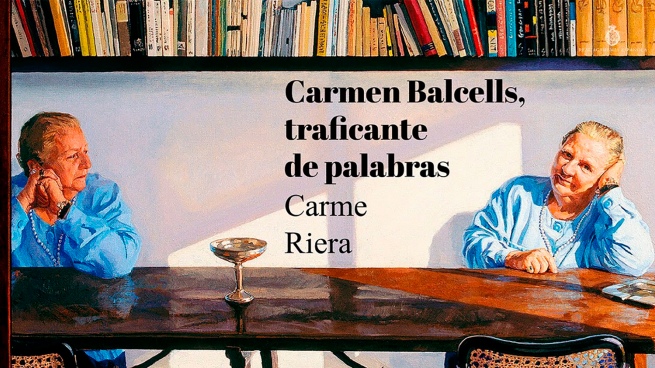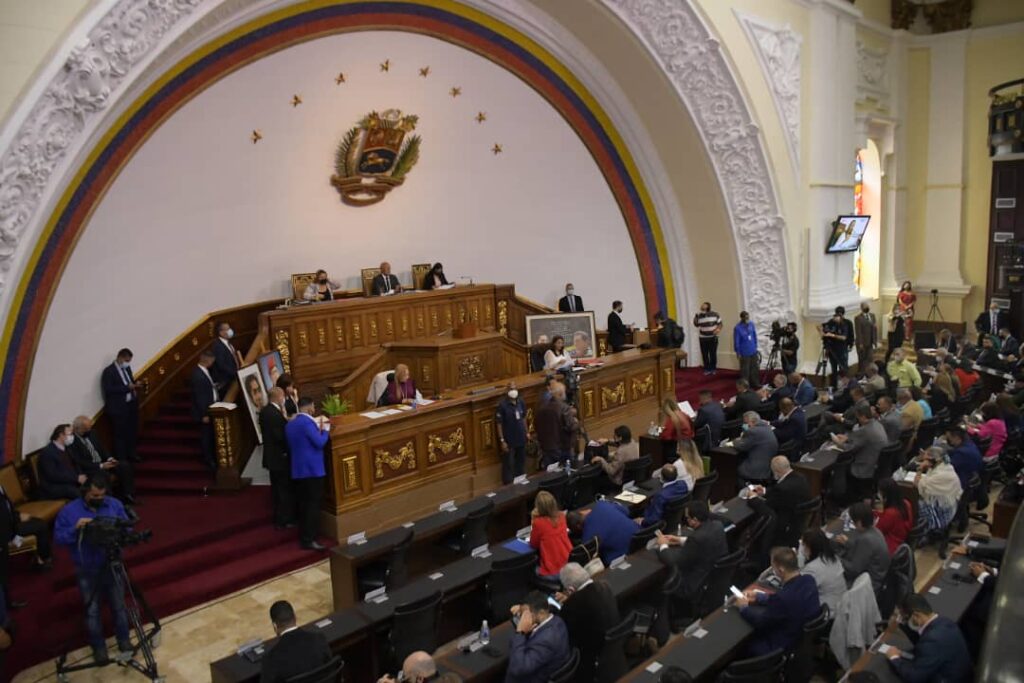With anecdotes, interviews, unpublished documents and a story that crosses Spanish history and the backstage of literary life, the writer and journalist Carme Riera reconstructed the authorized biography of the mythical Catalan agent Carmen Balcellswho knew how to promote and closely guard the literary careers of Gabriel García Márquez and Mario Vargas Llosa, but who also, by dint of character, professionalism and innovation, underpinned the work of the hundreds of writers he represented: “I did not want, in any way , writing a hagiography, the life of a saint. Carmen Balcells was not.”
In a voluminous book of more than 500 pages, Riera -client and friend of the protagonist- discovers the lights of the agent, generous in an environment often governed by misgivings, and the shadows cast by a character per complex.
For more than five years, Riera visited the Balcells Agency archive, conducted more than 25 interviews and articulated a story that shows all the grays of the person and the character, who looked alike without being exactly the same.
Nicknamed “Big Mom”, “Posess of Literature”, and “Super Agent with a License to Kill”; signed more than 50,000 contracts and worked with six Nobel Prize winners: Camilo José Cela, Mario Vargas Llosa, Gabriel García Márquez, Pablo Neruda, Vicente Aleixandre and Miguel Ángel Asturias; in addition to the Chilean writer Isabel Allende and the Argentine Julio Cortázar.
“Many publishers detest her for the ferocity with which she defends writers’ pennies, especially the young and most needy, and the day they don’t detest her I’ll begin to suspect she’s gone over to the opposite side”Gabriel Garcia Marquez on Balcells
Perhaps it is in the anecdotes, which allow one to discover the behind-the-scenes of Catalan literary life but also to reconstruct the evolution of the careers of two of the flagship authors of the Latin American Boom of which she was the architect, is where one can best understand who Balcells was. When the writer Manuel Vázquez Montalbán died of a heart attack at the Bangkok airport in 2003, she called Moncloa and it was thanks to her closeness to the Aznar couple that she managed to get the body repatriated urgently. “What do you need? What can I do for you?”, she would ask each time she saw one of her representatives. Astute, García Márquez replied that she needed 3 thousand dollars and, for years, he received a check for that amount for her birthday.
“I never talk about money with film editors and producers, because I have a literary agent who speaks for me better than me; first, because she is a woman, and then, because she is Catalan,” García Márquez once confessed and described what it was , according to him, the agent’s earring: “Many publishers hate her for the ferocity with which she defends writers’ money, especially the young and most needy, and the day they don’t hate her I’ll begin to suspect that she’s gone over to the opposing side.”

Télam: What was proposed when writing the biography? What kind of book didn’t you want to do? What was the most expensive part of the process?
Carmen Rivera: First of all, I wanted to pay tribute to Carmen Balcells. It seemed to me that if I wrote a book about her it would help solidify her image for the future. But I did not want, in any way, to write a hagiography, that is the life of a saint. Carmen was not. She had great qualities and also flaws. I have tried to show both sides, the light and the dark. The most expensive part was assembling the anecdotal aspects, with the documentation and file work.
T. Why do you maintain that it was your generosity that united the person and the character? Was it his most authentic characteristic?
CR: In the generosity of Carmen Balcells, the person and the character converged. And I think this happened because it was a genuine character trait of hers. Other aspects, such as a certain arbitrariness and a bit of despotism belonged to her character.
T.: He chose to make a reference to the fact that he was of the sign of Leo, that he asked for the natal charts and that he warned “that the stars influence but do not guide”. Why did he rescue this unreasonable side of the agent?
CR: Carmen Balcells was born on August 9, consequently, her astrological sign was Leo and it matched her character very well, just like the story in the book, in which I dedicate a chapter, “United by the stars” to her interest in the astrological aspects and the case he made of superstitions, perhaps infected by his friend García Márquez, who took them very seriously or at least he referred to that many times and, in part, also, perhaps, by Dolores Carmona, the person who for fifty years cared for Carmen’s house and who, as a good Andalusian, considered some things to be a bad omen. If I referred to that aspect it is because for Carmen it was important. Despite being a very rational person, she had an astrologer on her payroll, Lisa Morpurgo, from whom she asked for the astrological charts of her clients and employees.
T.: Why do you think your presence had a fundamental impact on the careers of García Márquez and Vargas Llosa?
CR: Carmen was essential for both. She took care of her works from the moment she became her agent and got substantial advances and lots of translations. García Márquez went to live in Barcelona because Balcells was there. As for Vargas Llosa, Carmen offered him a salary paid by the Agency so that he would leave Queen Mary College, leave London, settle in Barcelona and be able to dedicate himself exclusively to writing, just as he did. However, she received no fixed stipend, the oft-cited $500, from her agent. On the other hand, thanks to Balcells, she was able to begin to live comfortably off copyright, since she took care of placing it conveniently in the publishing market, as the novelist’s biographers corroborate.
T.: Balcells represented authors who wrote in Spanish, and she recognized herself as Catalan but also Spanish. Do you think that today, in the context of the independence movement, that complicates her recognition in Barcelona?
CR: I think so and it’s a shame. Barcelona lost its Barcelona Latinitatis Patria project and its archive passed to the Ministry of Culture. A street is the least that the city that she catapulted into the world with her agency can offer her.

















